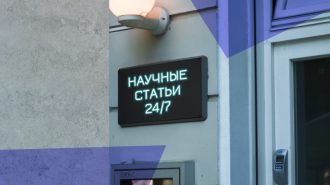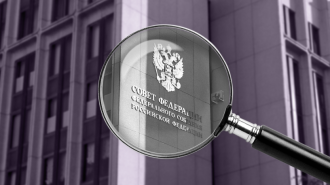The Innopraktika Foundation of Vladimir Putin's daughter, Katerina Tikhonova, has made a number of statements about its readiness to gather development institutions into "one perimeter". The public speaker to promote these initiatives was Tikhonova's friend Natalia Popova, a former photo model and now the first deputy general director of Innopraktika. Over the past few years, Popova has been lobbying for Innopraktika's interests in Africa and the BRICS countries, and probably wants to continue the reform of development institutions that began in 2020 but was interrupted.
Сorruption
Recently, American scientist Sam Payne received a review of his own article published three years earlier, but now its authors were five employees of Sechenov University. So the world scientific community learnt about the Russian company "International Publisher", which is engaged in the production of fake scientific articles and places them for money in major foreign journals. More details - in the material T-invariant.
Moscow State University has announced the creation of the "world's second or third most powerful" supercomputer, having purchased components for it through a Chinese firm trading on AliExpress. T-invariant tells us how, under conditions of total sanctions on Sparrow Hills, they managed to assemble a classified computing complex and what Vladimir Putin's daughter Katerina Tikhonova and her Institute of Artificial Intelligence have to do with it.
In early September, it became known that Dmitry Repin, who previously held the position of Advisor to the Rector of the Russian Academy of National Economy and Public Administration, was appointed Acting Deputy Director of IPPI RAS. The appointment took place against the background of the ongoing public conflict between the scientific staff of the institute and the recently appointed acting director of IPPI Maxim Fedorov. T-invariant tells what is known about the new administrator of the institute.
Students of the "School of District Anti-Corruption" together with Groza and T-Invariant studied the composition of expert councils at the Ministry of Education and Science of the Russian Federation. It turned out that more than 10 per cent of the experts who influence decision-making "on the most important issues of the ministry's activities" are plagiarists and violators of academic ethics.
RSUH, RUDN, Financial University under the Government of the Russian Federation, MGPPU were among the universities that founded and published journals with violations. "Laboratory of University Transparency" (Lupa) and T-invariant checked government procurement of 100 higher education institutions and found out that some of them conclude contracts with dubious publications.
University Transparency Laboratory (Lupa), with the help of the free online community Dissernet, analyzed the activities of expert councils of the upper house of the Russian parliament. It turned out that 10% of experts advising senators on the laws they pass have violations of academic ethics.
The Special Economic Zone (SEZ) "Alabuga", which has already hit the pages of all the world's media this year with a series of high-profile scandals, this time swung at the solar system and acted as a collective Ostap Bender for all the money - namely 491 trillion rubles . Leading Russian astrophysicists responded by recalling the gravitsappa on the Yubileiny satellite (a loud anti-scientific failure of Roscosmos from 2008).









